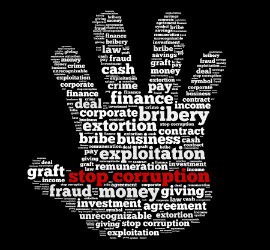An international workshop, that brought together anti-corruption practitioners from numerous regions, was organised with the aim of enhancing the application of corruption risk mapping and other risk assessment tools in strategy and policy-making. These efforts aim to foster more transparent, accountable, and efficient governance systems, preventing and combating corruption.
Over 70 professionals, policymakers and experts from Albania, Armenia, Azerbaijan, Bosnia and Herzegovina, Italy, Kosovo, Latvia, Moldova, Montenegro, Morocco, North Macedonia, Serbia, Spain (Andalusia), Tunisia, and Ukraine benefited from peer exchanges, practical learning and forward-looking dialogue. The discussions explored how corruption vulnerabilities and risks can be better identified and mitigated at national and institutional levels and improve policies and preventive mechanisms against corruption.
The workshop featured presentation on the Council of Europe’s national corruption risk mapping methodology, highlighting the importance of co-operation among various institutions and civil society during the corruption risk assessment process. Participants also explored the potential of technological innovations, such as data analytics, artificial intelligence, and the use of technology, in strengthening anti-corruption efforts.
Speakers emphasised the strategic significance of risk mapping in shaping effective anti-corruption policies and aligning institutional mandates with the actual needs of society. By adopting evidence-based strategies and action plans, corruption risk mapping allows for smarter allocation of resources, stronger internal controls, and promotes more transparency in governance.
Through the discussions, participants highlighted that corruption risk mapping and assessment are crucial proactive strategies that help governments and institutions detect vulnerabilities before they turn into systemic problems. When implemented effectively, these strategies significantly strengthen public sector resilience and build confidence among citizens. The Council of Europe will continue to provide technical support in enhancing the applicability of corruption risk assessment tools and anti-corruption policy documents in close cooperation with the participating authorities.
This event was organised as part of the European Union/Council of Europe joint programmes “Horizontal Facility for the Western Balkans and Türkiye” and “Partnership for Good Governance”, the European Union/Council of Europe joint project “Project against Economic Crime in Kosovo*”, and Council of Europe technical co-operation activities in its member states and beyond.





